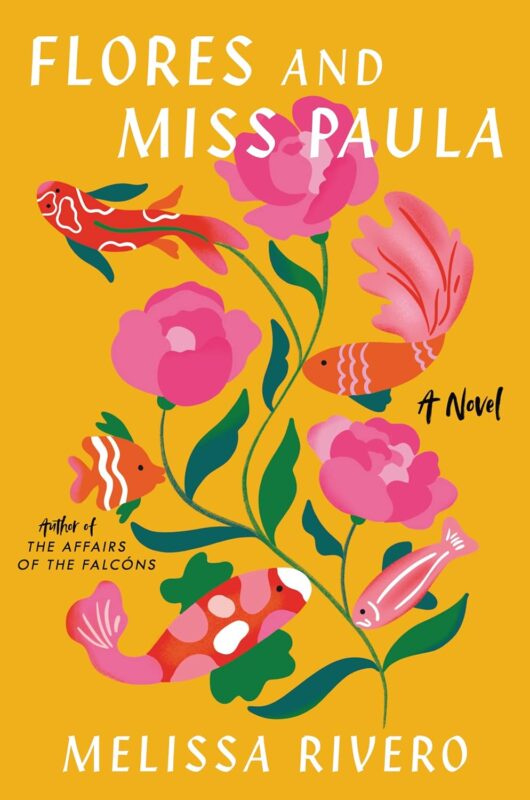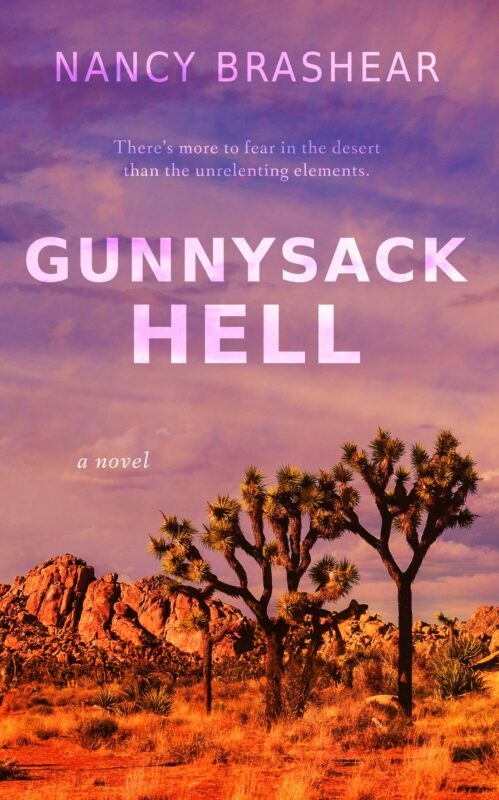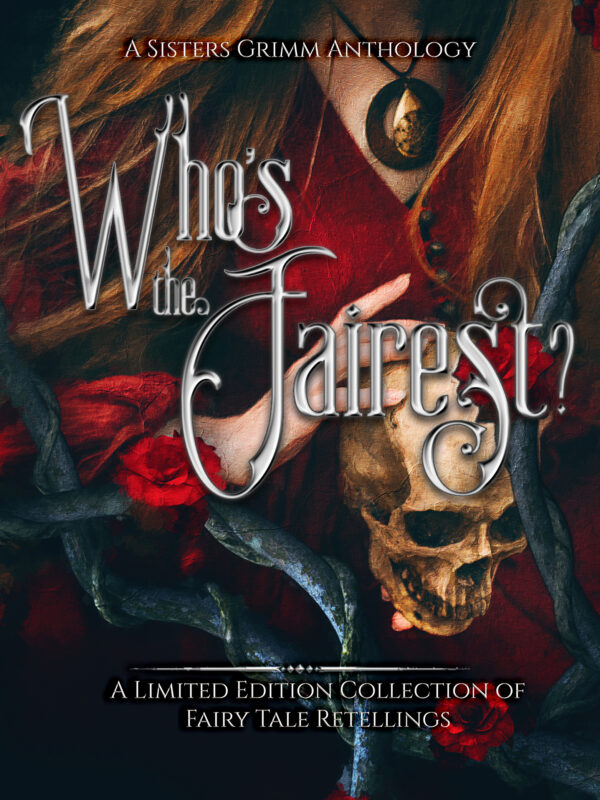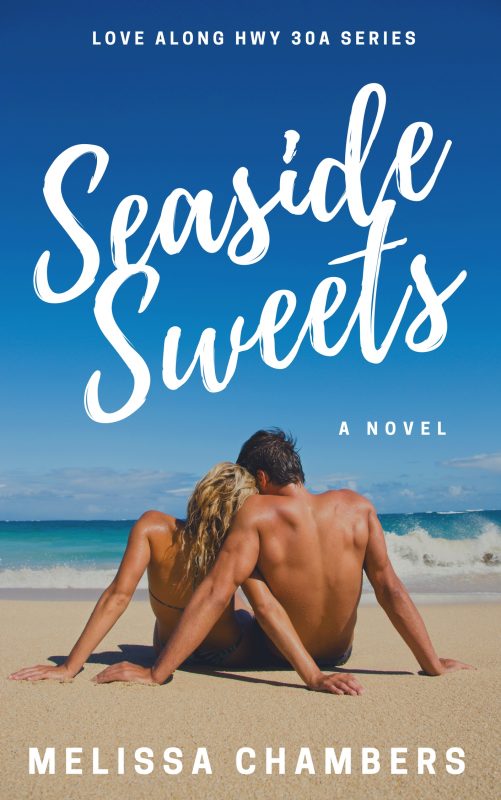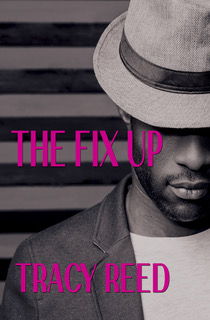Alina K. Field October Featured Author
October 21, 2020 by Alina K. Field in category Featured Author of the Month tagged as Alina K. Field, October Featured Author, Regency Romances
Award winning author Alina K. Field earned a Bachelor of Arts Degree in English and German literature, but her true passion is the much happier world of romance fiction. Though her roots are in the Midwestern U.S., after six very, very, very cold years in Chicago, she moved to Southern California and hasn’t looked back. She shares a midcentury home with her husband, her spunky, blonde, rescued terrier, and the blue-eyed cat who conned his way in for dinner one day and decided the food was too good to leave.
She is the author of several Regency romances, including the 2014 Book Buyer’s Best winner, Rosalyn’s Ring. She is hard at work on her next series of Regency romances, but loves to hear from readers!
Visit Alina
In addition to Quarter Days, Alina’s quarterly column’s on A Slice of Orange, you can visit her at:
Books by Alina K. Field
He Drove Right Into My Story
October 20, 2020 by Meriam Wilhelm in category A Bit of Magic by Meriam Wilhelm tagged as brainstorming, editing, husbands, inspiration
Driving
My husband and I went driving through the hills of Palos Verdes last Sunday afternoon. He drives a too tiny for me sports car that he absolutely loves and that I find rather confining. It was a beautiful day outside. The California coastal skies were clear. The ocean waves were gentle and incredibly tempting. For October, it was surprising just how many people were still enjoying our ocean waters.
But the air was overly warm and all I really wanted to do that particular Sunday was to stay inside with a good book. I had just finished writing my latest book and was well into the editing process and I was pretty sick of the whole thing. I still had not come up with a title, although there were several roaming randomly throughout my brain.
As much as I knew that I had work to do, I had grown tired of correcting punctuation marks and hunting for run on sentences. And so, really and truly, the only thing I wanted to do was to read my copy of Mary Higgins Clark & Alafair Burke – You Don’t Own Me. I had started it over a month ago and had just not found the time to get further into it. It had waited patiently for me on my desk for over a month.
Anyway, back to the car ride.
So my husband convinced me that the best way to get my book fully edited was to take a ride, clear my head and find something else to think about. “You’ll be sharper after you spend some time away,” he said, not really caring about my head but more about having company on his ride past the beach and through the still green hills.
We started our journey off with me offering up potential titles for my book and him coming up with sillier versions to distract me. To my surprise, he also came up with a few good ones. I was just about to launch into a discussion of why I might actually like his last suggested title when a strange man in a most unusual white car drove into the lane next to us. Our car being a lower to the ground Pontiac Solstice, I found myself having to look upward at the driver. The man, apparently aware of my interest, pivoted his gaze down on me, tipped his hat, smiled and promptly drove off.
Interesting Guy
“What an interesting guy,” I said. “I love his fedora hat (it was a strange shade of blue), but what the heck is he driving?” I asked my husband, who is well versed in the automobile world and knows far more about cars than I could ever hope for.
“A Morris Minor. A 1950 something model, I think,” he said.
Hitting the gas, while hoping to avoid a P.V. cop or two, my husband took off after the beautifully polished white car. “It’s a British made car. Came out after the war. Think it’s named after the guy who designed it.” (See, I told you he knows a lot about cars!)
“That car is older than me!” I said. “And the guy driving it looked like he could be the original owner.” Okay, so maybe I exaggerated a little, but the gentleman did look really old and his style of dress did not speak of Southern California. I think he might even have been wearing tweed on a ninety degree day!
We followed the car and the interesting character chauffeuring it through the hills for a few more minutes before the man turned off on a side street and we lost him. But in that short time, the infamous Morris Minor driver was tattooed on my brain. My husband and I drove home and I raced to my computer to learn all I could about the car I’d just seen.
Character
A few minutes later, my husband stuck his head in my office door and said, “You need to include that guy in one of your books. Stetson…”
“What about Stetson?” I asked.
“That’s what you should call him.”
And so I will. The man in the blue Fedora, wearing tweed and drive a 1950 something Morris Minor car. Hmm, can’t wait to start. And, of course, I’ll name him Stetson.
~Meriam
Books by Meriam Wilhelm
Vibrant & Vile Villains by Jenny Jensen
October 19, 2020 by Jenny Jensen in category On writing . . . by Jenny Jensen tagged as Complex villains, Good villians, Villains, writing
“All stories are about wolves. Anything else is sentimental drivel.”
Margret Atwood
That’s a strong statement—lots of ways to interpret it. I love it because to me, it says that all stories should have a villain. And I agree. How can you have the good without the bad? Where would the tension live? If something has to be overcome, you need a villain to vanquish. And if the plot needs redemption the story needs a villain to redeem. (A Christmas Carol without Ebenezer’s reform? Unthinkable.)
The villain isn’t always a person. It can be an institution,or an illness, or Mother Nature. All those ‘larger issue’ villains work for some magnificent tales, but my favorites are the really awful, mustachet wirling, gloating, cackling, venal bad guys.
Good Villains–we love to hate them
Good villains, the kind we love to hate, are never one dimensional tools included just to make the protagonist work hard to overcome something. A well-drawn villain is a fully fleshed out character with attributes, history, and purpose strong enough to motivate and justify the hero’s tribulations. We’re so fully shown who and what Mordred is that his relentles spursuit of King Arthur is entirely credible—and because Arthur is beautifully depicted
—it’s personal to the reader. Now that’s an enthralling story.
Whether redeemable or irredeemable the villain is often the best part of a story. No one can think of Oliver twist without Fagin popping upwith his “…face obscured by a quantity of red hair” as he beats and betrays the children he has enslaved. We don’t forget Oliver, but we don’t dream about him either (or is that a nightmare?). When a character is that memorable it’s because something, if not everything about him, is relatable.
Complex Villains
To develop a really badass villain, one whose actions the reader can understand and accept, the character needs some face time. Not as much as the hero certainly, but enough to lay the background for future actions, enough to make him real and fathomable. There is nothing more boring than a serial killer who is seen only through the gruesome details of the killing. If he is complex, as real people are, if he is exceptional in some way that supports an evil bent, then all the more disconcerting—like the jolly neighborhood butcher whose cutlets may not all be beef.
Some of the best villains have sterling personality traits. Perhaps they’re charming, or witty, well mannered and gracious. Traits contradictory to the villain’s actions make those bad actions all the more frightening. Showing the bad guy through contradictory traits is a powerful tool but if you work at it you can spin evil traits to appear benign—until they’re not. That’s chilling.
A well-developed villain written as an authentic character will give any story the spice it needs. Who will your next villain be?
Time Travel
October 18, 2020 by marianne h donley in category Apples & Oranges by Marianne H. Donley tagged as A wrinkle in time, portrait of Jennie, The Girl The Gold Watch & Everything, time travel
Time Travel – visiting another time, meeting Di Vinci, Mark Twain, or Archimedes sounds fun, on paper. Yet, I’m not sure I would be happy doing so in real life, especially those pops to the past–flush toilets, Starbucks, blow-dryers and antibiotics would be hard to give up. But I enjoy the idea in fiction.
Time Travel in the Beginning
I started out time traveling young, about nine, by reading Madeleine L’Engle’s A WRINKLE IN TIME. How I loved that book. I probably read it five or six times in a row because I was so taken with Meg, a GIRL, who was good at math, so good that she could help other children with their math homework. The time traveling part was just a side benefit.
Soon after I read PORTRAIT OF JENNIE by Robert Nathan, a haunting very short novel about an artist and a little girl who ages oddly. THE TIME MACHINE by HG Wells followed and gave me nightmares for a weeks –Morlocks! My reading lists were rounded out by PEBBLE IN THE SKY and END OF ETERNITY both by Isaac Asimov.
My Favorite Time Travel Novel
But my very favorite time travel novel is THE MIRROR by Marlys Millhiser. This novel is the story of Brandy and Shay –grandmother and granddaughter, who both look into an antique mirror on the eve of their weddings and switch places. I’ve never read any of Marlys Millhisner’s other novels, but they look interesting.
Time Travel on the Screen
Time Travel has been a fun plot device in lots of TV shows I’ve enjoyed over the years, from Sam and Darrin traveling to Salem in BEWITCHED, to the many episodes of STAR TREK, DR. WHO, QUANTUM LEAP and of course Mr. Peabody and Sherman’s WABAC machine.
Movies are included in my time traveling adventures. I love BACK TO THE FUTURE. I’m laughing just typing the title for BILL AND TED’S EXCELLENT ADVENTURE. A writing bubby and I dragged a gaggle of our kids and several of their friends to see this movie. We sat several rows behind the kids laughing our heads off, while the kids, ranging in age of seven to thirteen, sat there looking blankly from the screen to their clearly nutty mothers. I also enjoyed THE PHILADELPHIA EXPERIMENT.
My Favorite Time Travel Movie
The time travel movie I’ve enjoyed the most is the made for TV movie, THE GIRL, THE GOLD WATCH & EVERYTHING.
In searching for an image for THE GIRL, THE GOLD WATCH & EVERYTHING, I found out the movie was first a novel by John D. MacDonald. The same John D. MacDonald who wrote the Travis McGee hard boiled private detective novels. I was stunned, and now I really want a copy of the novel to read. The reissue copy of this novel includes an introduction by Dean Koontz.
Last but Not Least
I found other gems while looking on the Internet for time traveling tidbits. Andy’s Anachronisms is a website completely devoted to time travel in popular media. I also found Time Travel Institute a website that discusses possible theories behind time travel.
But, I saved the best gem for last. Susan Squires, who is an excellent writer and really nice person, has a series of time travel romance novels involving a time machine built by Da Vinci.
Do you have a favorite time travel novel, short story, TV show, or movie?
Would you like to travel in time?
Where would you go?
Spotlight on Andi Lawrencovna
October 17, 2020 by A Slice of Orange in category Spotlight tagged as ANDI LAWRENCOVNA, fairy tales, Halloween, new release, Short Stories, Sisters Grimm
Just in time for Halloween we have an author spotlight on Andi Lawrencovna and her soon to release anthology, WHO’s THE FAIREST? A Sisters Grimm Anthology. (October 20, 2020 and it is available for preorder, now.)

Andi Lawrencovna lives in a small town in Northeast Ohio where she was born and raised. She writes Fantasy with a twist, un-Happily-Ever-After-ing as many fairy tales as she can. And she’s not averse to looking at the odd nursery rhyme or ten when the mood strikes. Her Never Lands series is currently enamored with an ash covered assassin and a prince who’s not in the highest of towers. From ogres spouting poetry, to princesses toting swords, Andi’s stories aren’t quite like you remember.
For more, visit: www.AndiLawrencovna.com
Andi’s story in WHO’s THE FAIREST? A Sisters Grimm Anthology is called “The Snake’s Leaves” and we’re please to have an excerpt.
THE SNAKE’S LEAVES
ANDI LAWRENCOVNA
The clipper bobbed with the tide against the dock, rocking in the first waves as the storm blew in. Dark clouds churned the sky. Raindrops threatened to fall, but remained heaven bound for a moment more.
“It’s a bad omen.”
“There are no such things as omens.”
Reigner turned his head and stared at his prince.
Despite the response, Euridone’s voice held concern, and his face was stern with concentration and consideration.
Though the ship might not set sail during the midst of the storm, it would set sail eventually.
The waters whispered of hate and roiling death.
Rey did not think the voices beneath the waves referred solely to the tempest.
He might not have believed in omens before, but he wasn’t fool enough to ignore them when they stared him in the face. He opened his mouth to argue with his master—
“We should find our berth and get settled in. She’ll be along soon enough, and I’d rather be stowed away than have to deal with her.”
A call to action, and yet Rey remained still at Euri’s side, the backs of their hands touching where they stood together, neither of them wanting to move forward to whatever fate awaited them.
“I hate the sea.”
“It hates us too.” He replied and shifted the pack on his shoulder. A raise of his hand, the quick flick of his fingers forward, and the servants that lined up at their backs with the prince’s trunks moved towards the ship, and Euri followed their lead, Rey bringing up the rear.
The wind wailed as they walked the gangplank to the clipper’s deck.
Ware. Ware. You will die here.
Rey turned his face to the storm as the first drops of rain fell. “I’ve died before. I’m not afraid of my end.”
For only a moment, the wind stilled, listening to his words.
It screamed at his impudence when he smiled into its gale.
Three Months Ago
Prince Euridone Adavignlor, Hero of the Battle of Blackmore, Lord of the Southern Settlements, husband to the Princess Abrialla, wedded Heir to the Kingdom of Spinick, stood in the hallway outside the birthing suite and paced the cold stone floor.
His wife’s labor had slowed to a crawl somewhere in the tenth hour of the trial.
The healer said it was normal for a first birth to take time, and perhaps it was, but that was over a day ago when the pains first started, and now, at nearly forty hours, even Euri knew that something was wrong.
He was born a farmer’s son with nothing to his name but the clothes on his back and the dirt caked to his skin. Hock and hoof, field and plow, working the land and toiling beneath the sun, that was where he came from. He was a good farmer. A good and dutiful son.
And when the war came, and the king called all eligible men to battle, he traded pitchfork for pike and learned to wield a sword in place of the culling scythe.
He was a good soldier.
When his captain died, and he was chosen to replace the man, Euri discovered he was good at leading too.
He won the war with his tactics for King Ashwarth.
He should have died at Blackmore, but he’d somehow returned to the land of the living where the king took an interest in the man named champion.
A good soldier. A good leader. A good prince.
Words Euri never expected, nor wanted, to hear, especially when they were followed by a wedding decree, and the burden of what marrying the princess would entail.
For all his life, all he’d ever wanted was to escape his farm.
Now all he longed for was a chance to return to the quiet fields and the mooing of cattle and the mucking out of horse stalls.
He wanted to take his child away from the castle walls and show the babe the beauty of a simple life that Euri always took for granted with the man who he’d come to depend on more than his next breath.
A man who was not Euri’s spouse but her bastard brother.
Rey was more honorable than all the nobles put together in the palace halls.
And he was the only one Euri wanted, and that his vows demanded he never claim.
Not that Abrialla honored her marriage to Euridone.
For all the prince knew, the babe fighting to be born was not even his, some other of his wife’s lovers having whelped the child on the princess.
He should be angry at the knowledge, at the implication.
All he could feel was relief.
A small, childish, plaintive part of him prayed that if the babe proved to be another’s, he would be allowed to break his oath and be free of the witch.
The more rational part of his mind knew the unlikeliness of the same.
It wasn’t Abrialla who wanted Euri as a prince.
No matter that the king gave his daughter every other wish she desired, Euri was Ashwarth’s demand for the kingdom, and there was no escaping a king.
Abrialla would destroy the kingdom Euri fought a war to save.
Ashwarth chose a farm-boy to lead his country instead of his own spawn to keep the land safe.
And now, here Euri stood, outside his wife’s room, waiting for the birth of the child that would tie him eternally to the nation he called his own.
Knots tangled in his stomach.
Because the child was late in coming, and country or not, rule or not, the infant was innocent of his mother’s indiscretions or his father’s peasant desires. The babe deserved a chance at life, but Euri knew how frail new life could be.
The door to the princess’ suite opened.
A tired nursemaid stepped out of the brightly lit room into the dim hall where the prince waited.
“It is a boy, your highness.”
Euri nodded.
He’d known.
All along he’d known that she would bear a son that Euri would call his own.
He held himself still, one hand braced at the windowpane behind him, not sure if it was to hold him back from forging the room and looking at the child fresh from the womb, or if it was to keep him standing, that the birth was done, and the child was here. He was well and truly bound up in the fight for rule now with an heir of his own, blood or not.
Euri’s valet stepped forward to draw the maid’s attention when he could not.
“How is the prince’s lady wife?”
Rey stood with his hands clasped behind his back, anxiety showing in every line of his body. There was no love lost between princess and manservant. Where Euri might not abandon a bastard child, the king had no such proclivities when Rey was born and cast aside.
It was a mercy, in Euri’s mind.
If Rey was raised a prince, or a lord, or anyone of importance, they would never have met upon the battlefield. That Reigner was just a man, same as Euri, made all the difference.
Rey kept his eyes on the maid, and Euri tore his from the valet to watch a tear slide down the woman’s face.
“It was a hard birth. The healer,” her hand trembled when she raised it to her cheek. “He has asked the prince be admitted to speak his farewells.”
Read the rest of THE SNAKE’S LEAVES in WHO’S THE FAIREST? A Sisters Grimm Anthology
Affiliate Links
A Slice of Orange is an affiliate with some of the booksellers listed on this website, including Barnes & Nobel, Books A Million, iBooks, Kobo, and Smashwords. This means A Slice of Orange may earn a small advertising fee from sales made through the links used on this website. There are reminders of these affiliate links on the pages for individual books.
Search A Slice of Orange
Find a Column
Archives
Featured Books
FLORES AND MISS PAULA
Forgive me if I failed you. Remember that I always loved you.
More info →SEASIDE SWEETS
After her ex runs up her credit card, clears her bank account, and gets her fired, Seanna escapes to Seaside, Florida where the men are hot as the Gulf Coast sun…one in particular.
More info →Newsletter
Contributing Authors
Search A Slice of Orange
Find a Column
Archives
Authors in the Bookstore
- A. E. Decker
- A. J. Scudiere
- A.J. Sidransky
- Abby Collette
- Alanna Lucus
- Albert Marrin
- Alice Duncan
- Alina K. Field
- Alison Green Myers
- Andi Lawrencovna
- Andrew C Raiford
- Angela Pryce
- Aviva Vaughn
- Barbara Ankrum
- Bethlehem Writers Group, LLC
- Carol L. Wright
- Celeste Barclay
- Christina Alexandra
- Christopher D. Ochs
- Claire Davon
- Claire Naden
- Courtnee Turner Hoyle
- Courtney Annicchiarico
- D. Lieber
- Daniel V. Meier Jr.
- Debra Dixon
- Debra H. Goldstein
- Debra Holland
- Dee Ann Palmer
- Denise M. Colby
- Diane Benefiel
- Diane Sismour
- Dianna Sinovic
- DT Krippene
- E.B. Dawson
- Emilie Dallaire
- Emily Brightwell
- Emily PW Murphy
- Fae Rowen
- Faith L. Justice
- Frances Amati
- Geralyn Corcillo
- Glynnis Campbell
- Greg Jolley
- H. O. Charles
- Jaclyn Roché
- Jacqueline Diamond
- Janet Lynn and Will Zeilinger
- Jaya Mehta
- Jeff Baird
- Jenna Barwin
- Jenne Kern
- Jennifer D. Bokal
- Jennifer Lyon
- Jerome W. McFadden
- Jill Piscitello
- Jina Bacarr
- Jo A. Hiestand
- Jodi Bogert
- Jolina Petersheim
- Jonathan Maberry
- Joy Allyson
- Judy Duarte
- Justin Murphy
- Justine Davis
- Kat Martin
- Kidd Wadsworth
- Kitty Bucholtz
- Kristy Tate
- Larry Deibert
- Larry Hamilton
- Laura Drake
- Laurie Stevens
- Leslie Knowles
- Li-Ying Lundquist
- Linda Carroll-Bradd
- Linda Lappin
- Linda McLaughlin
- Linda O. Johnston
- Lisa Preston
- Lolo Paige
- Loran Holt
- Lynette M. Burrows
- Lyssa Kay Adams
- Madeline Ash
- Margarita Engle
- Marguerite Quantaine
- Marianne H. Donley
- Mary Castillo
- Maureen Klovers
- Megan Haskell
- Melanie Waterbury
- Melisa Rivero
- Melissa Chambers
- Melodie Winawer
- Meriam Wilhelm
- Mikel J. Wilson
- Mindy Neff
- Monica McCabe
- Nancy Brashear
- Neetu Malik
- Nikki Prince
- Once Upon Anthologies
- Paula Gail Benson
- Penny Reid
- Peter Barbour
- Priscilla Oliveras
- R. H. Kohno
- Rachel Hailey
- Ralph Hieb
- Ramcy Diek
- Ransom Stephens
- Rebecca Forster
- Renae Wrich
- Roxy Matthews
- Ryder Hunte Clancy
- Sally Paradysz
- Sheila Colón-Bagley
- Simone de Muñoz
- Sophie Barnes
- Susan Kaye Quinn
- Susan Lynn Meyer
- Susan Squires
- T. D. Fox
- Tara C. Allred
- Tara Lain
- Tari Lynn Jewett
- Terri Osburn
- Tracy Reed
- Vera Jane Cook
- Vicki Crum
- Writing Something Romantic
Affiliate Links
A Slice of Orange is an affiliate with some of the booksellers listed on this website, including Barnes & Nobel, Books A Million, iBooks, Kobo, and Smashwords. This means A Slice of Orange may earn a small advertising fee from sales made through the links used on this website. There are reminders of these affiliate links on the pages for individual books.






































![AWrinkleinTime[1]](https://i0.wp.com/www.mariannedonley.com/wp-content/uploads/2015/03/AWrinkleinTime1-209x300.jpg?resize=175%2C251)





